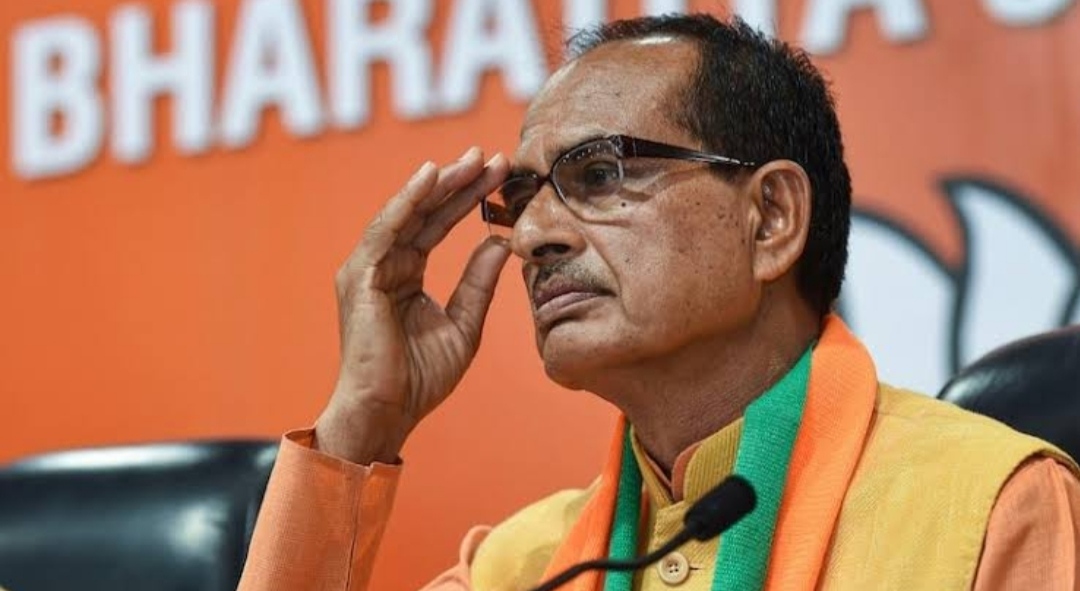On Aug 18, Madhya Pradesh CM Shivraj Singh Chouhan announced that “only the children of Madhya Pradesh will get the State Government jobs in the state.” Thus, Madhya Pradesh Government is going to reserve all its State Government jobs for the domiciled population of the state. Chief Minister said that the Government is framing necessary legal provisions for providing all State Government jobs of MP to the children of MP only from now on. This means that the natives of other states will not be able to apply for State Government jobs in Madhya Pradesh. On the occasion of Independence Day, Chief Minister had said that preference will be given to state’s youth in the Government jobs. The announcement came after three days of Independence Day. This is a very big announcement by the MP Chief Minister and it is being seen as a political masterstroke ahead of the 27 assembly by-polls, whose dates are yet to be announced by the Election Commission of India.
After the Chief Minister’s announcement, BJP state spokesperson Rajneesh Agrawal said that the decision will go a long way in making youths of the state Atmanirbhar i.e. self-dependent. It is expected that more announcements like this one may also be made in the coming days including preferences to entrepreneurs and companies of MP in awarding of tender, Government contracts, etc. Reacting on the decision of State Government, state congress chief and ex-Chief Minister Kamal Nath tweeted “during our Government’s 15 months tenure we took many decisions to ensure that youths of MP get preference in jobs in the state.” CM Shivraj Singh Chouhan said that legal provisions regarding the reservation of Government jobs for students of MP will be introduced soon. But CM did not elaborate about the proposed legal provisions. This is not the first time when the announcement regarding reservation for local people in jobs has been made in the state. Earlier, the previous Kamal Nath Government had also announced to reserve 70% of jobs in industrial units for locals. It is important to see the decision of the Government from legal purview.
Legal Aspect of the Decision:
As per many legal experts, the announcement made by Madhya Pradesh CM to give Government jobs only to domiciles of Madhya Pradesh would not stand the test of law. Many people criticized the decision of the state government and called it being inconsistent with the provisions of the Constitution. Many other states have also made similar attempts in the past but they failed to stand with their point in the court. Reservation on the basis of state domicile is justified but providing 100% reservation on this basis is difficult to be justified. It is true that state has the obligation to look after the welfare of its subjects. Reservation policies are justified on the ground of providing equality of opportunity to the suppressed sections of the society. Many times reservation in the educational institutions on the basis of domicile has been challenged in the Court. Deprivation of seats at educational institutions of national importance to deserving candidates merely because they are residents of different state creates an unjustified classification. State domicile reservation is for the welfare of the natives of the particular state. It is seen that the claim of state interest fulfils the requirements of Article 14 wherein the enquiry is restricted to the dual test of intelligible differentia and rational nexus with the object. It is known to all that states in India differ in terms of deprivation and backwardness. On 4th Aug 2020, J & K High Court issued notices to the centre and Union territories administration on a petition challenging the legal validity of 100% reservation in Government jobs for permanent residents. After hearing the petition, Justice Tashi Rabstan gave the respondents four weeks’ time to file their replies on the contention of the petitioners that sec 5A of the amended J & K Civil Services Act of 2010 contradicts Article 16(3) of the Constitution which guarantees equal opportunities in employment to all citizens. It was contended by the petitioners that any reservation under Article 16 should not exceed 50%. Reservation on the basis of state domicile must be in consonance with Article 16(3) of the Constitution.
Former Advocate General Ravinandan Singh after the announcement made by Madhya Pradesh CM said that “to me, it is one of those populist announcements which always fail the test of law.” The implementation of the decision announced would be violation of Article 14, 16 and 18 of the Constitution. It is good to give preference to domicile candidates in jobs if required for the state but giving 100% reservation for domiciles is a disputed matter. Jobs cannot be totally confined to one group of people by discriminating other citizens of India. It is very important for the policy makers to consider the merits and demerits of domicile reservation.









